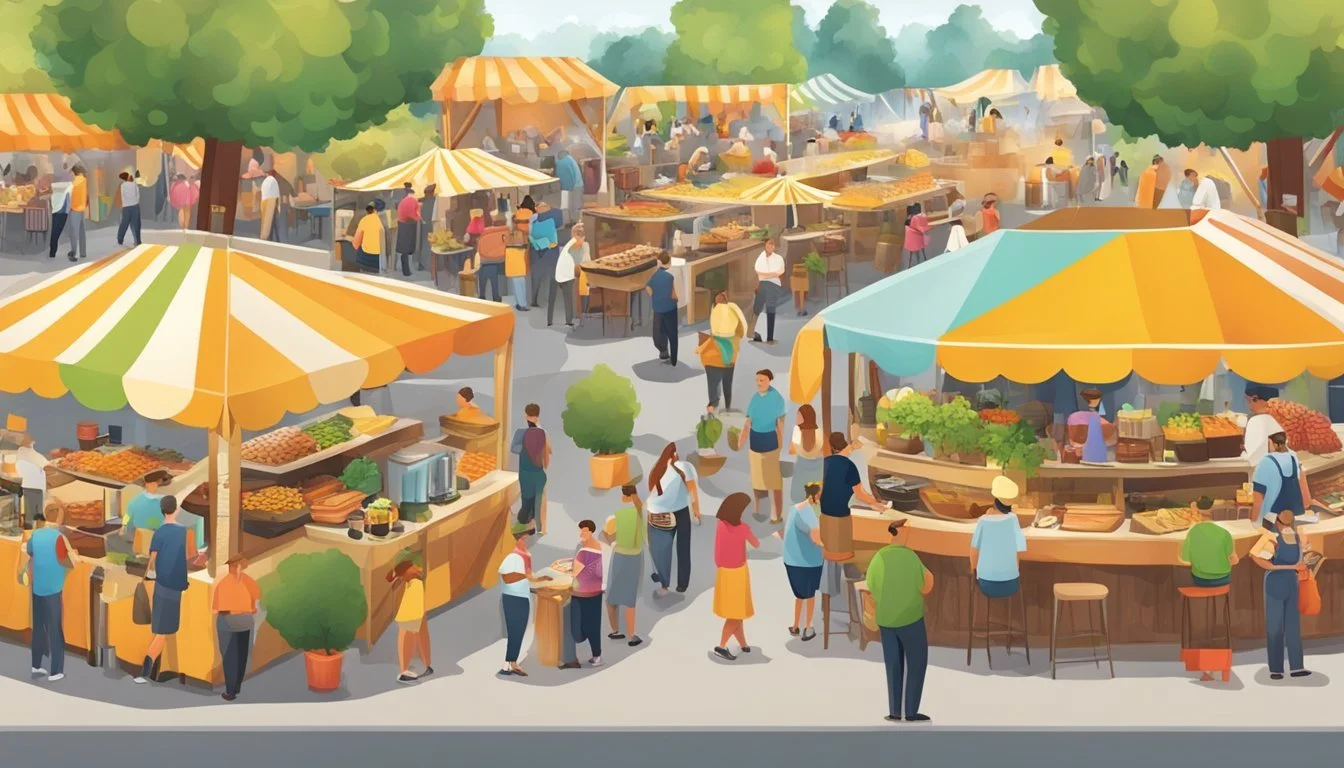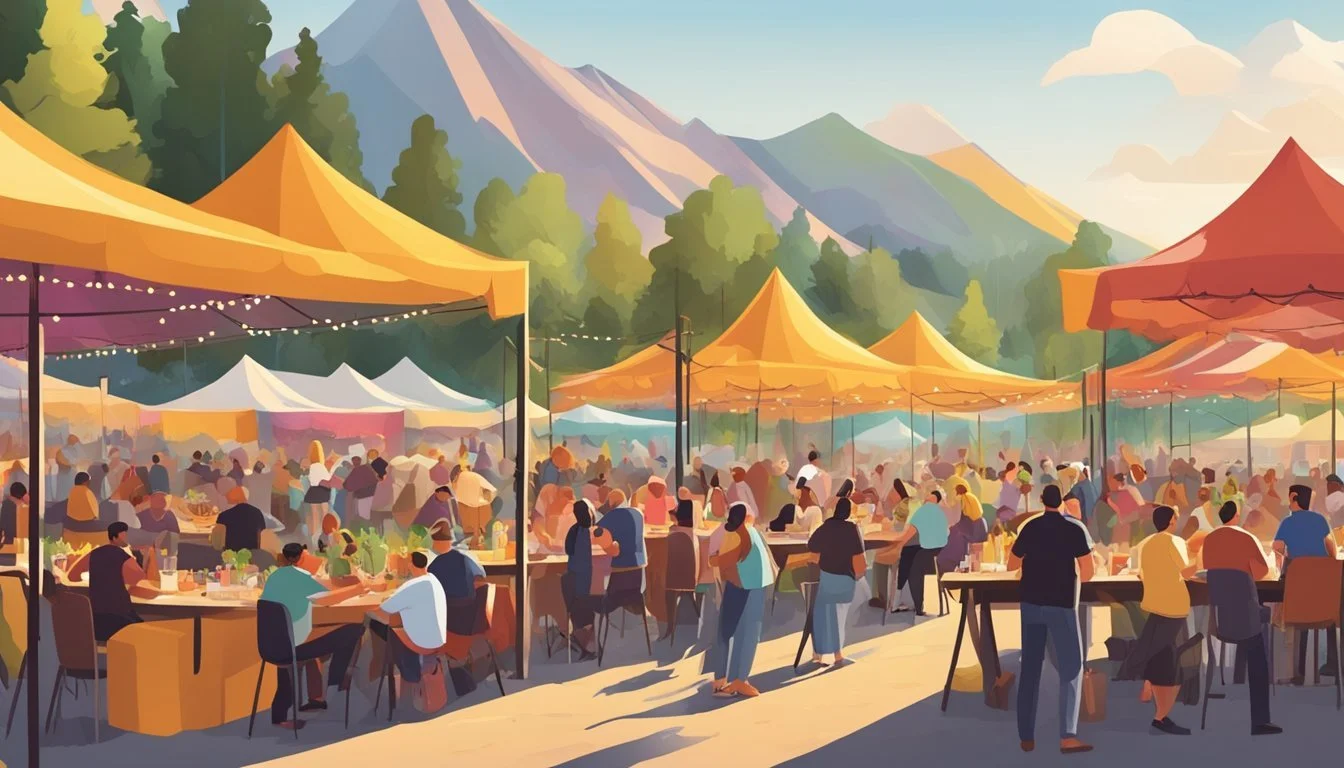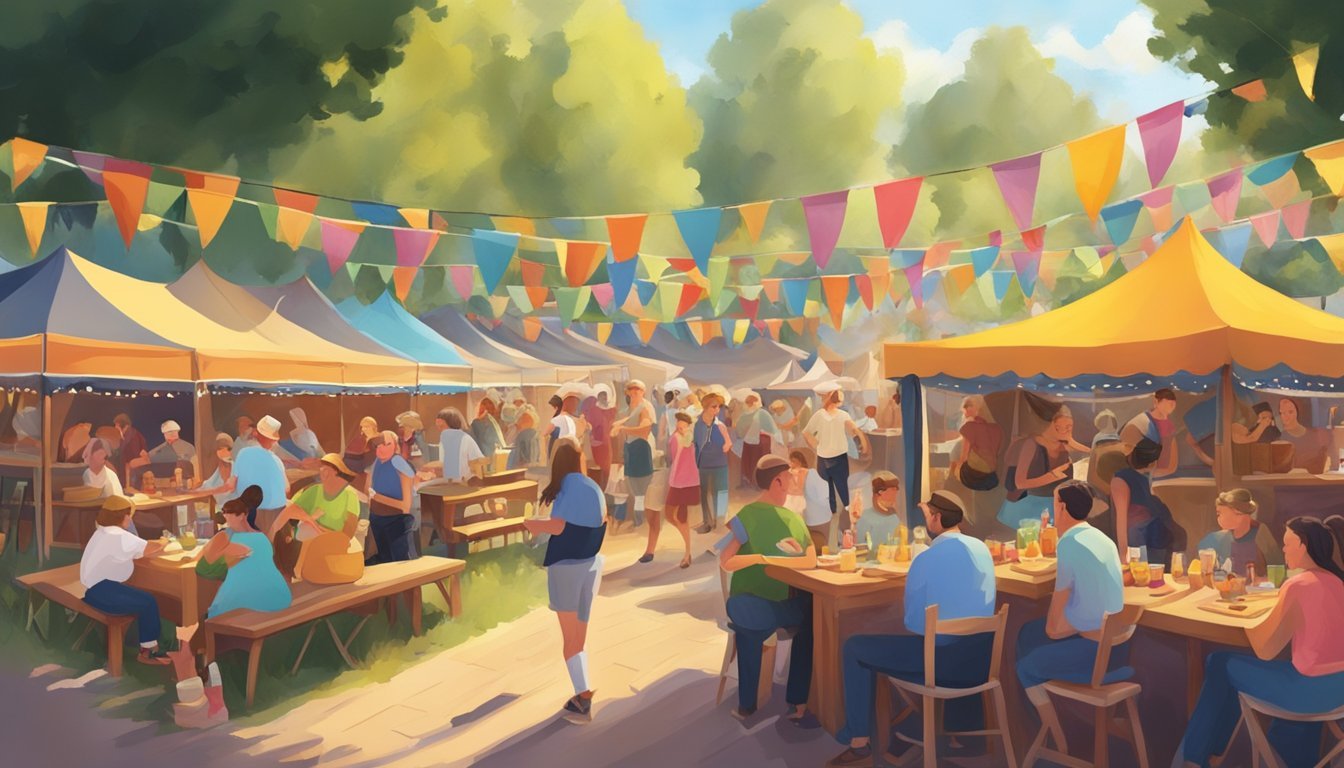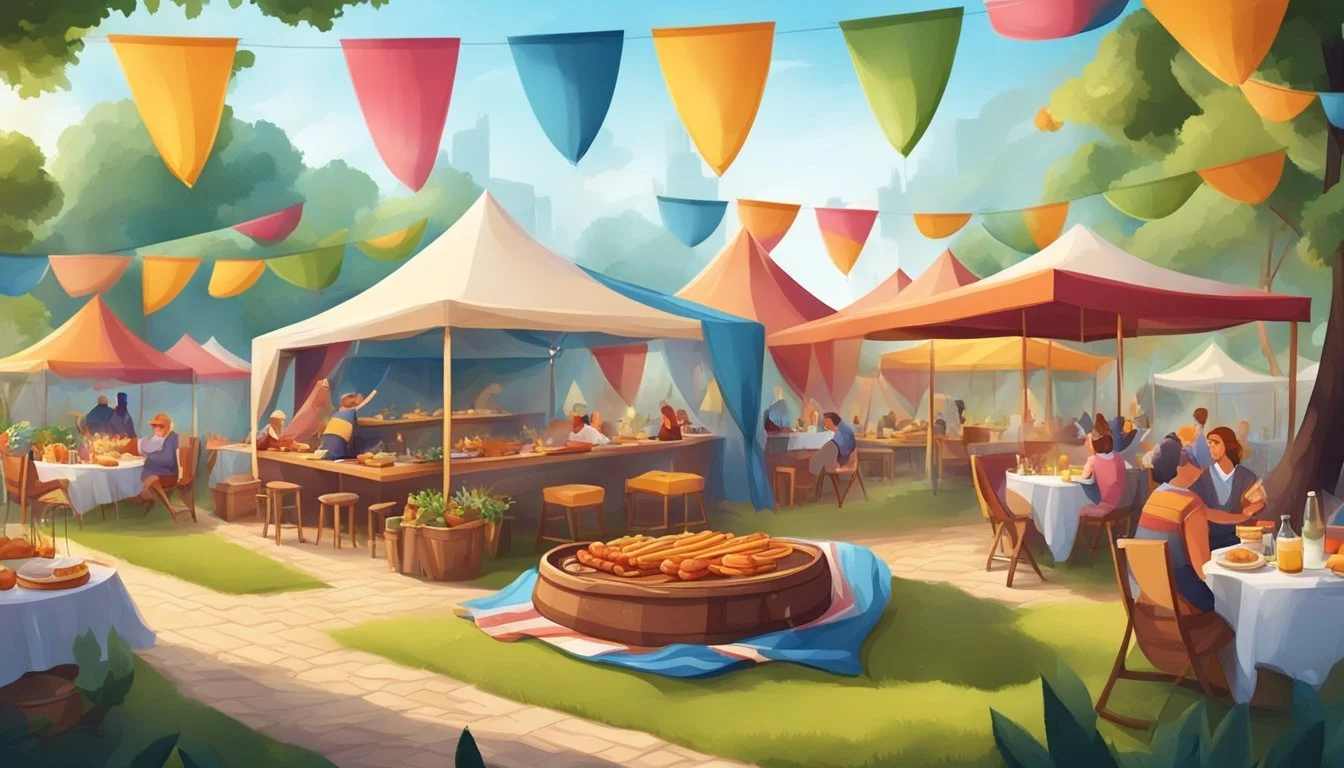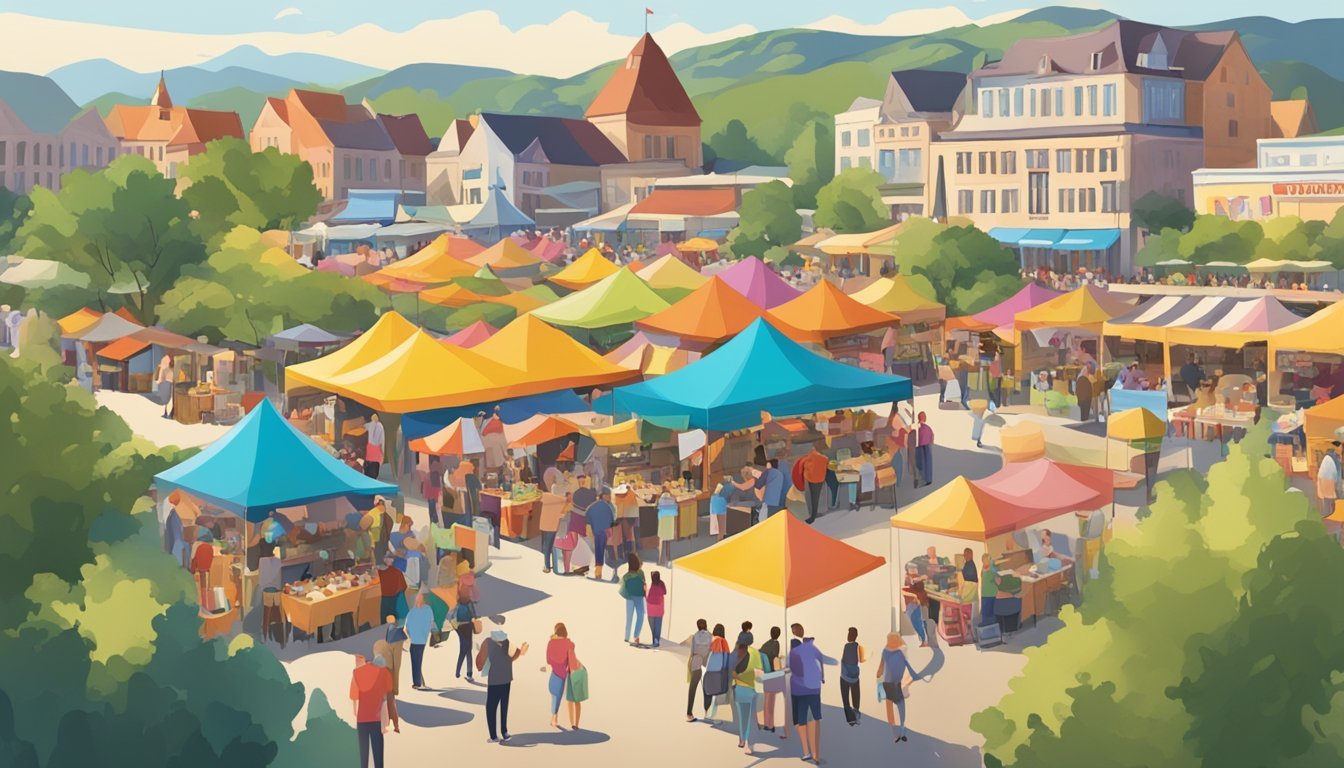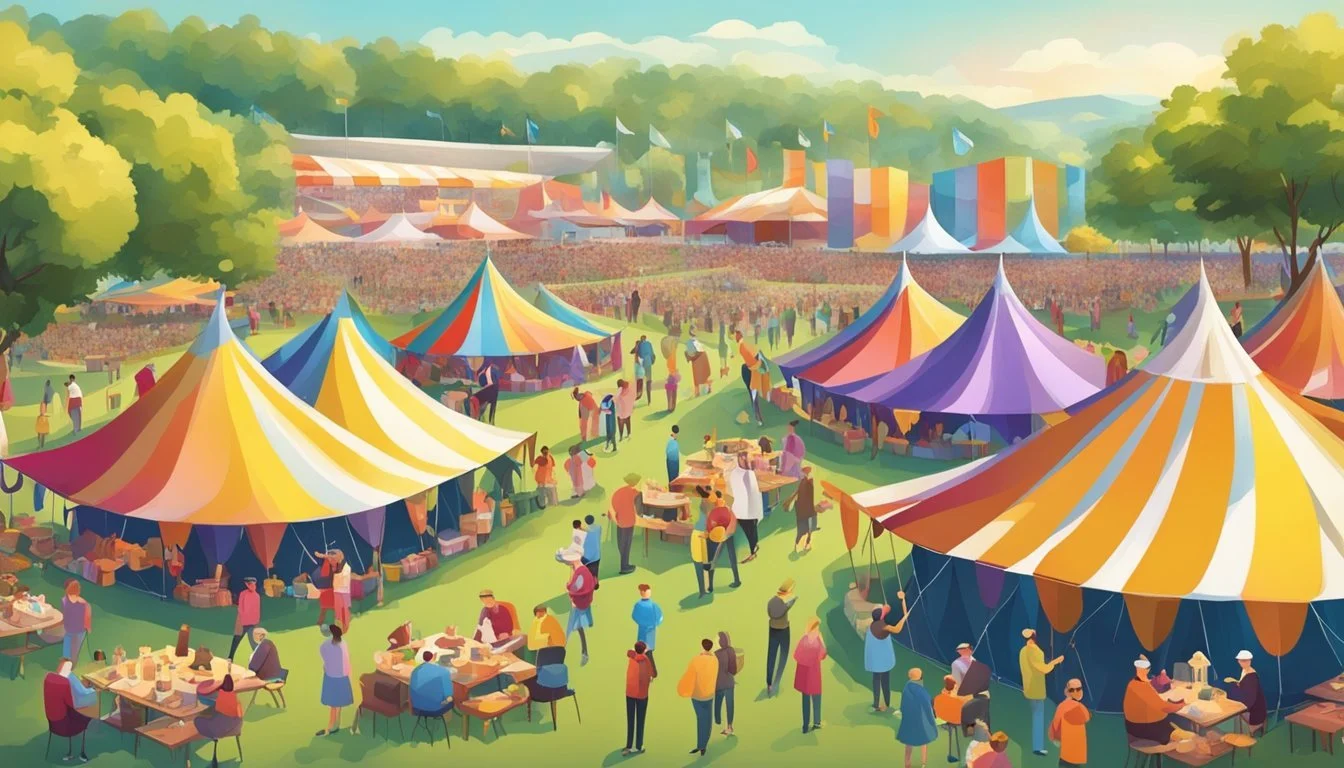German Texan Food and Wine Festivals
A Guide to Celebratory Feasts
In Texas, the rich heritage of German culture is celebrated with vibrant food and wine festivals that attract visitors from all over. The German settlers, who immigrated to Texas in the 1830s, brought their distinct cuisine and winemaking skills, which have been woven into the state's cultural tapestry. These festivals not only commemorate the historical influences but also showcase the contemporary twists that Texan chefs and winemakers have infused into traditional German recipes.
Cities like New Braunfels, Fredericksburg, and Grapevine pay homage to their German roots with annual events that are deeply anticipated by locals and tourists alike. Wurstfest in New Braunfels is a prime example, bringing together a sense of community around bratwursts, pretzels, sauerkraut, and strudels. Similarly, Fredericksburg, with its notable German heritage, hosts an Oktoberfest that features a symphony of oompah music, German food, and a wide selection of Texas wines. These festivals represent a fusion of cultures, where the spirit of Gemütlichkeit – the warm, friendly, and welcoming atmosphere – matches the Lone Star State's renowned hospitality.
The festivals also serve as a testament to the region's flourishing wine industry. Grapevine, known as the "Wine Capital of Texas," celebrates GrapeFest, a testament to the state's burgeoning wine production, complete with tastings and culinary events that underscore the German influence on Texas viticulture. These gatherings are not merely about enjoyment but are also key in preserving and educating about the German Texan legacy through authentic experiences.
Historical Context
This section delves into the rich tapestry of German settlement in Texas and the subsequent evolution of German-Texan culture, particularly as it manifests in the region's food and wine festivals.
German Settlement in Texas
German migrants began arriving in Texas during the early 19th century. By the 1830s, the first German settlers trickled into areas such as Texas Hill Country. In 1842, the establishment of the Adelsverein, also known as the Society for the Protection of German Immigrants in Texas, marked a more organized effort to promote German colonization in the region. This endeavor led to a significant increase in the number of German immigrants making Texas their new home.
Evolution of German Texan Culture
Over the years, these German settlers infused their traditions, language, and customs into the local Texan landscape. Texas German, a unique dialect, is a linguistic testament to this cultural amalgamation. German influence is particularly evident in the region's festivals, where German heritage and German culture are celebrated with enthusiasm. Annual events such as Wurstfest in New Braunfels showcase Germany's culinary and festive traditions, sustained and adapted within the Texan context.
Annual Festivals
In Texas, German heritage is celebrated with gusto through various festivals. These events feature traditional food, music, and cultural activities that pay homage to the state's considerable German-American population.
Oktoberfest Celebrations
Fredericksburg, a city noted for its German heritage, hosts an annual Oktoberfest with plentiful German food, drink, and oompah music spanning several stages. Likewise, Oktoberfest in Muenster offers a similar experience, reflecting the town's strong German roots.
New Braunfels takes its Oktoberfest seriously with the event known as Wurstfest. It's a blend of German-style festivities with Texan hospitality. The town, with its rich German history, turns into a hub for culture, sausages, beer, and dance.
Wurstfest
Wurstfest in New Braunfels is a notable nod to German culture, fashioned as a "Texas-sized Oktoberfest". The festival takes place every fall and invites people to savor a slice of German life with authentic food, beer, music, and dancing.
Maifest
Maifest is celebrated in several Texan towns, including Boerne and Tomball, signaling the arrival of spring with a tribute to German customs through music, food, and parades. The festival originated in Germany and is now a staple in these Texas communities.
Other Notable Festivals
Throughout the Texas Hill Country, German-influenced festivals abound. The Tomball German Heritage Festival occurs every spring, offering a family-friendly environment filled with traditional music, dance, and culinary delights. San Antonio, with its diversified cultural landscape, brings the German festival experience through its vibrant showcase of traditional arts, crafts, and cuisine.
Culinary Delights
In Texas, German culinary traditions have interwoven with local customs to create a distinct fusion cuisine celebrated at various festivals. These events are a showcase of authentic German foods, German-Texan fusion dishes, and a wide selection of wine and beer.
Traditional German Foods
German festivals in Texas honor their heritage by serving authentic German dishes. The staples include:
Sausage: Bratwursts and frankfurters are common, often accompanied by sauerkraut.
Schnitzel: Breaded and fried pork or veal cutlets (What wine goes well with veal cutlets?).
Pretzels: Twisted, baked dough, usually sprinkled with coarse salt.
Strudel: Pastry often filled with sweetened apples.
Served in settings adorned with lederhosen and European stylings, these foods provide an immersive cultural experience.
German-Texan Fusion Cuisine
At the crossroads of German and Texan culinary practices, a unique fusion cuisine has emerged:
Texas BBQ with German Flavors: Incorporating spices common to German cuisine (What Wine Pairs Perfectly With German Cuisine) into classic Texas barbecue.
Sausages with a Twist: Local meats put a Texan spin on traditional German wursts.
Bier Cheese Dip: A blend of craft beer and Swiss cheese, perfect for pretzel dipping.
Festivals might pair these foods with local Texas wines, creating a German-Texan flavor profile that is entirely unique.
Wine and Beer
Both wine and beer have prominent roles in German-Texan festivals:
Beer: German-style lagers and ales, including many craft beers, are readily available.
Wine: Central Texas, known for its vineyards, offers a selection of wines that complements both German and fusion dishes at these events.
Whether attendees prefer a crisp beer or a smooth glass of wine, there is an abundance of choices to enhance the dining experience.
Cultural Exhibits
German Texan food and wine festivals are showcases of cultural heritage, especially evident through exhibits in music, dance, attire, and traditional craftsmanship.
Music and Dance
At these festivals, one can witness a variety of live music performances, which often include German music such as polka bands, yodeling, and accordion ensembles. Dancing is a central feature, with attendees enjoying traditional dances such as polkas and waltzes. These events frequently host dance competitions and encourage festival-goers to join in the festive movements.
Traditional Attire
Authentic German fashion makes a vibrant display at these festivals. Men don traditional lederhosen, while women adorn themselves in dirndls, a nod to the historical attire of the Bavarian region. These costumes are not just for show but are worn by many attendees, creating a colorful tapestry that animates the festival grounds.
Craftsmanship and Trade
The festivals are also a hub for skilled vendors offering a range of German goods. Visitors can find handcrafted items and products that reflect German technical prowess—from cuckoo clocks to finely wrought metalwork. Additionally, German architectural influences are visible in the festival venues themselves, offering a glimpse into the traditional designs of German buildings. Craft beer, another highlight of the cultural exhibits, is abundantly available, featuring a selection from local breweries that follow time-honored German brewing techniques.
Family Entertainment
German Texan festivals offer a range of family-friendly entertainment options that celebrate the rich cultural heritage. Visitors can expect an immersive experience with carnival attractions, educational activities, and live performances that cater to all ages.
Carnival Attractions
Carnival attractions are a staple at these festivals, providing a fun and lively atmosphere. Guests can enjoy a variety of carnival games and rides suitable for both children and adults. The vibrant midway is filled with classic games that test skill and luck, while the rides range from thrilling roller coasters to gentle carousels, ensuring that there's something for every level of adventure.
Games: Balloon darts, ring toss, and milk can throw
Rides: Ferris wheels, bumper cars, and spinning teacups
Educational Activities
Festivals often include educational activities that highlight German culture and history, giving families an opportunity to learn together. Interactive exhibits and workshops allow children to engage with German traditions, such as pretzel making or learning a few words in German. These activities are not only enjoyable but also serve as a unique learning experience.
Workshops: Pretzel twisting, traditional craft making
Exhibits: Historical displays of German-Texan heritage
Live Performances
Live music and performances are at the heart of these festivals, often featuring traditional German bands and dancers. Families gather to listen to oompah music, and the lively polka tunes encourage everyone to get on their feet and dance. Performers dressed in authentic German attire bring the spirit of Oktoberfest to Texas.
Music: Brass bands playing German classics
Dance: Folk dancers performing in lederhosen and dirndls
Location Spotlights
In the heart of Texas, German heritage thrives through annual food and wine festivals. These events highlight the state's rich cultural tapestry and offer an array of traditional experiences.
Fredericksburg Festivities
In Downtown Fredericksburg, along Main Street, the spirit of Germany is celebrated with enthusiasm. Each year, Fredericksburg honors its German roots with an Oktoberfest that boasts authentic music, food, and drink. The streets come alive with oompah bands, Bavarian treats, and crafts, transforming the historic Hill Country town into a festive German village.
Event Highlight: Oktoberfest
Location: Downtown Fredericksburg, on MarktPlatz
Activities: Live German music, food vendors, artisan market
German Texan Traditions in Austin
Austin, a cultural hub in Central Texas, showcases its Germanic heritage through food and wine events. These festivals allow attendees to indulge in German cuisine, sample an assortment of wines, and partake in cultural activities that pay homage to the German Texans who have helped shape the city.
Event Highlight: Texas Wine + Food Festival
Location: Various venues across Austin
Features: Wine tastings, German food presentations, cultural exhibits
New Braunfels' German Influence
In New Braunfels, a town founded by German immigrants, the German influence is deeply woven into the local fabric. The Comal River provides a scenic backdrop for the celebrated Wurstfest, a festival that takes Oktoberfest to heart with German music, dancing, and a plethora of wurst (sausages).
Event: Wurstfest
Location: 120 Landa St., New Braunfels
Unique Offering: Large selection of German beers and traditional foods
Visitor Information
When planning to attend German Texan food and wine festivals, visitors should consider travel arrangements and accommodations in advance, as well as familiarize themselves with festival schedules and ticketing information.
Travel and Accommodations
Visitors traveling to German Texan food and wine festivals can access the area through several airports, with the closest major airport being San Antonio International Airport for Fredericksburg-based events. Accommodations range from boutique hotels to cozy bed and breakfasts, which often provide a unique local experience.
Airports: San Antonio International Airport (SAT)
Lodging:
Boutique Hotels: Example Inn & Spa
Bed & Breakfasts: Heritage Haus, Garten Retreat
Visitors are advised to book their stay early, as festival season often coincides with peak tourism periods.
Festival Schedules and Tickets
Festival dates and ticketing options vary across the different events, with some festivals occurring annually in October. Tickets can typically be purchased online in advance, which is recommended to ensure access and often at a discounted rate.
Fredericksburg Food & Wine Fest:
Date: October (Annually)
Tickets: Available online at FestTicketing.com
Bestfest:
Date: October (Annually)
Tickets: Purchase at BestfestTickets.org
For specific dates and ticket prices, visitors should refer to the official festival websites.
Conclusion
German influence on Texan culture is abundantly celebrated through various food and wine festivals. Wurstfest in New Braunfels stands out as a prime example, attracting more than 100,000 visitors each November. It's not just a carnival of sausages and beer, but a cultural homage to centuries-old German traditions brought to Texas soil.
Similarly, the Muenster Oktoberfest is a testament to Texas's German heritage. Muenster, a small town with deep German roots, hosts this event annually, captivating several thousand visitors with authentic German food, music, and festivities. This event is typically held in October, contributing to the state's autumnal celebrations.
Texas's German festivals showcase an intertwining of cultures encapsulated through culinary experiences. Each festival presents an opportunity for Texans and visitors alike to savor German cuisine—ranging from hearty plates of schnitzel and pretzels to robust pours of meticulously crafted beers.
While the coronavirus pandemic has posed challenges, the resolve to preserve and participate in these cultural festivities remains strong. Communities continue to support and foster these gatherings when safe, ensuring the spirit of German Texan camaraderie endures. They not only perpetuate the historical bonds but also contribute to the cultural fabric, enriching the diverse state of Texas.



